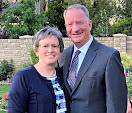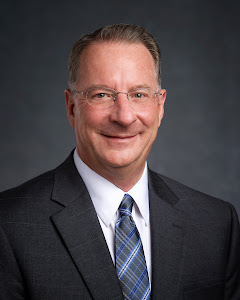General Conference Summary
Darrel Hammon
What a wonderful General Conference over the past couple of days. While the messages were many, the counsel deep, I have attempted to summarize each talk.
Thank you, President Monson, for the announcement of the three new temples:
o Fort Collins, Colorado
o Meridian, Idaho
o Winnipeg, Canada
Thank you, Elder Perry, for your counsel about the Sabbath day and counseling us to keep ourselves unspotted from the world, to go to the House of Prayer, to offer up our sacraments, and to rest from our labors. Plus, thank you for reminding us that the greatest joy is following the Savior.
Many thanks to Sister Jean Stevens for her incredible insight about children and how we need to be just like they are so that we can ultimately become more Christ-like.
Gracias, Elder Gonzalez, por sus consejos: followers of Christ are loving people and followers of Christ make and keep covenants, noting we are happier when we live the teachings of Jesus Christ.
Elder Richards, thank you for your insight that all pain can be soothed and in Him—the Lord Jesus Christ—we can find rest to our souls.
A huge reminder from Elder Quentin L. Cook helped us understand that much we accomplish in the church is the result of the dedication of the women in the church and reminding us the women are incredible because of the way they face the challenges of life. Plus, no woman should even need to apologize for nurturing children first, and we should all be careful not to be judgmental when sisters choose to work outside the home.
Thank you, President Eyring, for reminder to us to honor and celebrate what the Lord has done to serve the poor and the needy of His children on earth and sharing with us Elder Melvin J. Ballard’s comment that “you can give a crust to the Lord, and He will give a loaf in return.”
President Packer, your testimony about how we are followers of Christ is always spot on. Plus, your counsel: If you are looking for a church that requires very little, this isn’t the one, helps us understand how much we need to do. We know you always testify of truth.
The consummate doctor, Elder Russell M. Nelson, gave us prescriptions for spiritual success: One needs to keep all of the commandments and will strengthen that faith. Obedience allows the blessings to flow and will provide spiritual and physical protection. Plus your counsel to parents: You bear the primary responsibility to help your children learn faith. Let your faith focus on the Christ. Teach that faith with deep conviction.
Thank you, Elder Maynes, for the poem “Twas a sheep not a lamb…” It is one of my favorites, one I use all of the time. Also, thanks for reminding us that being the offspring of a loving Heavenly Father is a simple doctrine, that the family is fundamental to the order of Heaven, and that our eternal happiness in not Satan’s objective. He wants to deprive us of eternal happiness with our families. He does everything in his power to destroy the family.
Thank you, Elder Samuelson, for answering the question: Who is entitled to testimony? And your answer: Anyone who is willing to pay the price.
Elder Oaks, thank you for discussing the importance of desire and saying that desires dictate our priorities. When we capture the vision of what we can become, then our desires will change.
Many thanks to Elder Ballard for his wonderful counsel about serving, stating the most important attribute of Heavenly Father and His Beloved Son is the gift of charity, and from charity springs our capacity to love and serve.
At the Priesthood session, we learned from Elder Andersen a missionary’s mission is a great opportunity and responsibility linked to his or her eternal destiny. The Lord is generous to those who love Him. Plus, a missionary’s actions prior to the mission will determine the power his/she brings to the mission.
Elder Snow, thank you for discussing hope and helping us understand that hope alone does not mean we’ll be successful and reminding us the spiritual journeys we face today require no less effort today than they did in times past.
Thanks to Elder Gibson discussing the sacred keys of the priesthood and counseling us to go to the scriptures to find out what our duties are.
President Uchtdorf, your words of wisdom are from God. We know some of us are “living below our privilege.” We know now that we need to leave the “Do It” button on and turn off the “later” button. We also learned we shouldn’t allow a day to go by without listening and doing what the spirit suggests. Finally, you counseled us to become experts in the doctrine of the gospel and the priesthood.
President Eyring, thank you for your counseling regarding our “priesthood school” and how we need to sit in counsel with our fellow brethren in our quorums and groups and “lift” each other and to learn about God’s will and His mysteries and the keys to the kingdom.
Oh, dearly beloved President Monson, your prophetic counsel to not subject ourselves to the filth of the world comes at no better time. We know our strong testimonies are the surest way to protect us from evil and that we need to keep them vital. Your great wisdom regarding marriage and keeping our marriages alive will help all of us. Plus, the single brethren who have not married need to begin thinking seriously about being serious.
On Sunday morning, President Uchtdorf said it would be wise to turn down the volume control of noise of the world so we can hear the quiet promptings of the spirit. Plus, he mentioned the Lord expects His members to open up their mouths. The best way to preach the gospel is through example.
Elder Johnson, thank you for helping us under affliction is part of the mortal existence—to provide a trial of our faith and that personal growth should be an outcome of our afflictions.
Bishop Burton, thank you for your counsel regarding service: We honor those in our day those who reach out to the poor, feed the hungry, minister to the sick, visit the captive—this is the sacred work the Savior expects from his disciples.
Thanks to Sister Allred for her counsel that we must love and serve one another—the essence of discipleship.
Elder Bednar, your insight continually amazes me. Juxtaposing experiences with light, light from entering a room and turning on the light and the gradual light from the rising of the morning sun, was incredible and will require more pondering on all our parts. As we honor our covenants and keep the commandments, we can walk with confidence that God will bless our steps and inspire our utterances.
Again, President Monson, thank you for discussing temples and the importance of them. We know that no sacrifice is too great to make it to the temple and that temples are more than just stone and mortar. They are filled with trials and testimony; sanctified by the spirit. Thank you for reminding the young people—and all of us—to always have the temple in your sights. Never do anything that will compromise this goal
Elder Scott, we appreciated the tenderness with which you spoke this afternoon, for your love of your wife, reminding us to have faith in the promise of the Lord, especially regarding marriage and children and the eternal nature of these things.
Elder Christofferson, your message today was extremely poignant to me about the plan Heavenly Father has for each of us and that often we need to be willing to accept a correction, yes even a divine chastening. We need to truly become self-correcting, noting we all need to pray for His inspired corrections.
Elder Pratt, thank you for inspiring us to continue to pay our tithing and understanding the Lord’s richest blessings are our families and are spiritual.
Elder Robbins, we get the “to do” list vs. the “to be” list. Bottom line is this: we need to do the things we know we need to do while simultaneously “being” who we need to be.
Elder de Hoyos, will call the Church, the Church of Jesus Christ of Latter-day Saints for it is the name the Lord provided for us through revelation.
Thank you, Elder Grow, for your poignancy today about your brother and the miracle of the Atonement and how the Lord allows us to put behind us our past mistakes.
Elder Holland, thank you for your insight about us being the ensigns of the world and to reflect in the days ahead on the unique phenomenon General Conference is. We will also testify to everyone that God not only lives but HE speaks for our time in and the counsel we have heard is under the direction of the Holy Spirit. Your strong testimony of the President Monson is contagious! We love President Monson.
President Monson, your concluding remarks about our Heavenly Father being cognizant of each of us. We will strive to good citizens of the countries and communities where we live. We humbly thank the Savior for not turning back. Indeed, He taught us how to live; He taught how to die.
Thank you for a wonderfully joyous and spiritual conference.









